MS: Mum hopes groundbreaking trial helps her multiple sclerosis
- Published
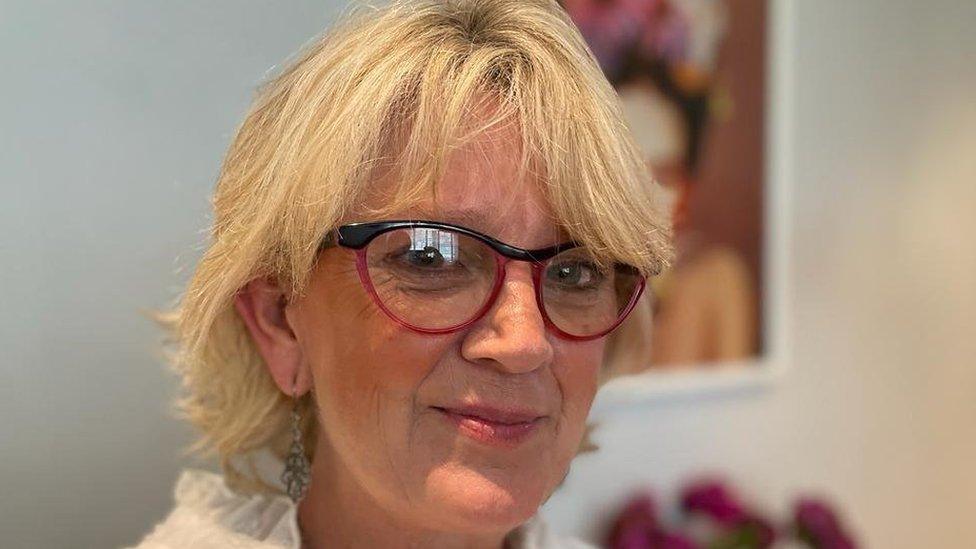
Lisa Haines said her symptoms ticked all the boxes for MS, but she has always been positive about her future
When Lisa Haines fell pregnant her collection of strange symptoms disappeared, only to return with a vengeance soon after giving birth.
"When I walked it was as if my feet didn't know where the earth was," she said, adding that people would ask if she'd been drinking.
Her son was 10 months old when she was diagnosed with multiple sclerosis, external.
She is now the first patient on the Welsh arm of a ground-breaking trial to see whether existing drugs can help.
Seventeen years on from her diagnosis, Lisa now uses a scooter and walking stick.
"I couldn't physically walk up and down the road without feeling as if I was going to collapse," she said.
"I felt exhausted, as if I couldn't stay on my legs. I was living in the downstairs bedroom and was missing out on so much, so the scooter has been a god-send."

What is MS?
Multiple Sclerosis is a disease that affects nerves in the brain and spinal cord.
MS affects the body in different ways and has many symptoms, but people with MS won't normally experience them all.
Some of the most common symptoms include: feeling very tired during the day; bladder problems; problems with balance and co-ordination - for example when walking.
At the moment there is no cure for MS, but drugs can help reduce the effects.
Eighty-five per cent of people have 'relapsing remitting' MS where symptoms are mild for a while, or even disappear completely.
Symptoms can suddenly flare up again in the relapse stage, about half of these people will develop 'secondary progressive' MS after 10 years.
Sources: NHS , externaland Multiple Sclerosis Society, external


Lisa and her husband love travelling to classic car events, which she can still do since getting a motorised scooter
As the proud owner of a classic Mini, Lisa's scooter also meant she can continue going to car shows with her husband Mike.
"The Mini is what brings me joy and the scooter folds into pieces, so I don't have to miss out on any of that," she said.
The 55-year-old mum from Cardiff has progressive MS, where early symptoms of the neurological condition develop over time.
She said her diagnosis was a relief rather than a shock, as she'd already researched her symptoms and it ticked all the boxes.
"I thought: I can deal with this, I'm not going to die of it, I can cope with this, whatever it throws at me, I'll be ok," Lisa said.
But she said existing research and treatment typically focus on the more common "relapsing remitting" form of the disease, where symptoms flare up and subside.
"There's not a lot for progressive MS," she said. "It's as if we're forgotten about, so when I saw the Octopus trial, I thought 'yes - something that could help'."

The name Octopus refers to the multi-arm, multi-stage trial, where several drugs can be tried at the same time and more can be added or dropped as results emerge.
It is being run centrally from a team in London, but the first Welsh arm has recently started, run by Dr Karim Kreft, a neurologist at University Hospital of Wales in Cardiff. It is hoped further centres around the country will also follow.
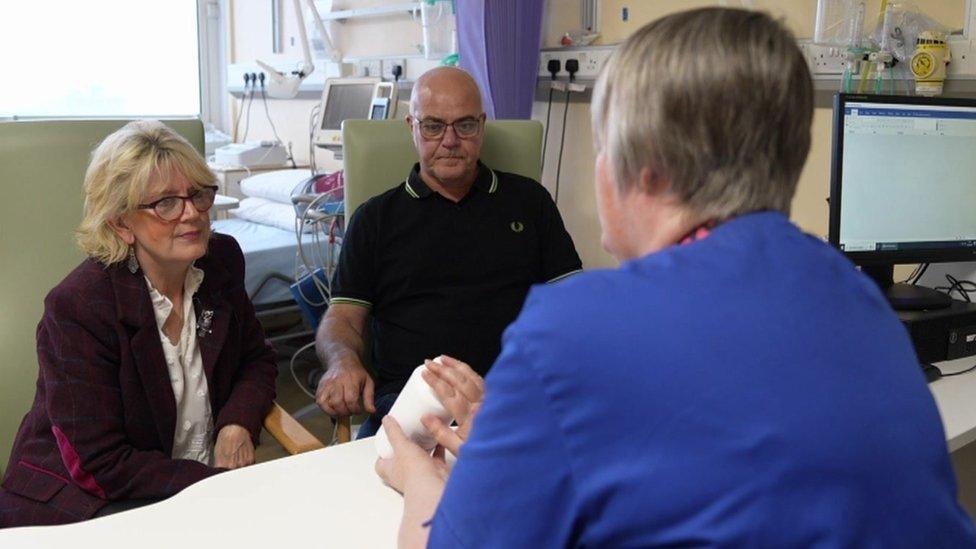
Lisa and her husband Mike talk to Cynthia Butcher, a neuroinflammatory research nurse
"There are about 5,600 MS patients in Wales and we know that during the last decade the numbers have increased, so probably this is an underestimation of the number," he said.
"In progressive MS in general we see there is a slow deterioration in walking abilities, but also reduced dexterity of hand function, as well as cognitive slowing.
"So we hope to see that all of those aspects will be slowed by the drugs we try in this trial.
"For MS patients in general over 15 approved treatments are available, but those are mainly for relapsing remitting patients. For primary progressive patients there's only one treatment currently available," he said.
For those whose relapsing remitting form of the disease develops into progressive MS, only some are eligible to the one form of treatment available.
Dr Kreft agreed it can leave patients with limited options.
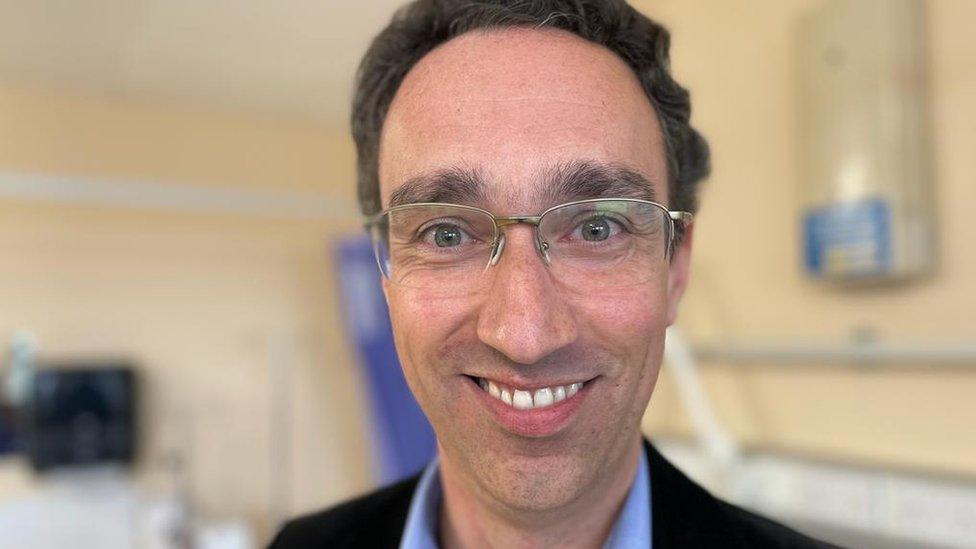
Dr Karim Kreft, neurologist, is leading the Welsh arm of the Octopus trial
"That's why this trial is so important," he said.
The first two medications being trialled are Metformin, which is used for diabetes, and a high-dose alpha-lipoic-acid (ALA), as there's some evidence that they may slow disease progression.
"We start with those treatments because we think those are the most promising treatments to start with," Dr Kreft said.
If drugs prove ineffective, patients can be swapped to a different arm of the research.
"We really hope to see the slowing of the disease progression," he added. "That will be a massive increase in the quality of life of our patients."
Dr Jacqui-Ann Hanley, head of research at the MS Society, said: "This is a major moment for MS research and it's thanks to all the wonderful participants, like Lisa, that MS trials can happen.
"We encourage people to explore the MS research possibilities available to them, external. We won't stop until we have treatments that transform the lives of everyone with MS."
Related topics
- Published4 April 2023
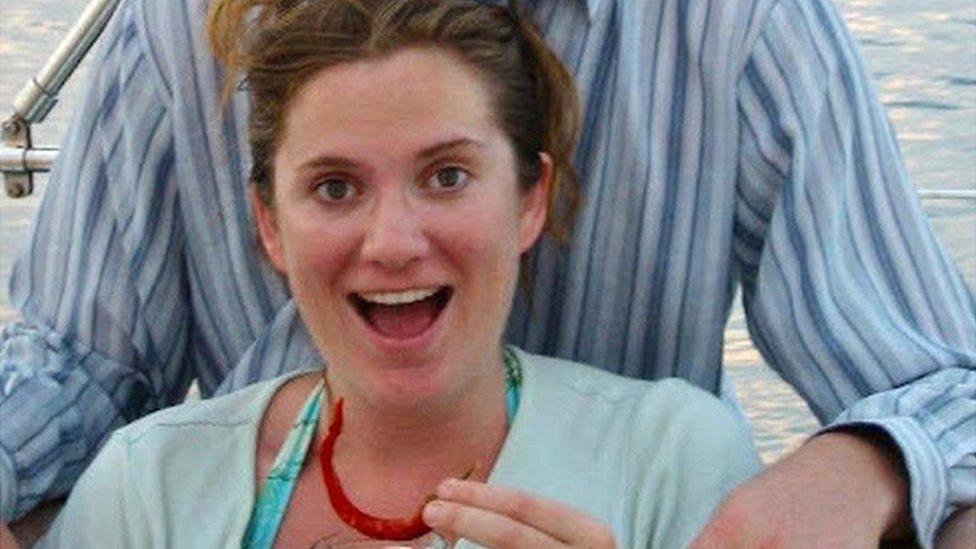
- Published13 January 2023
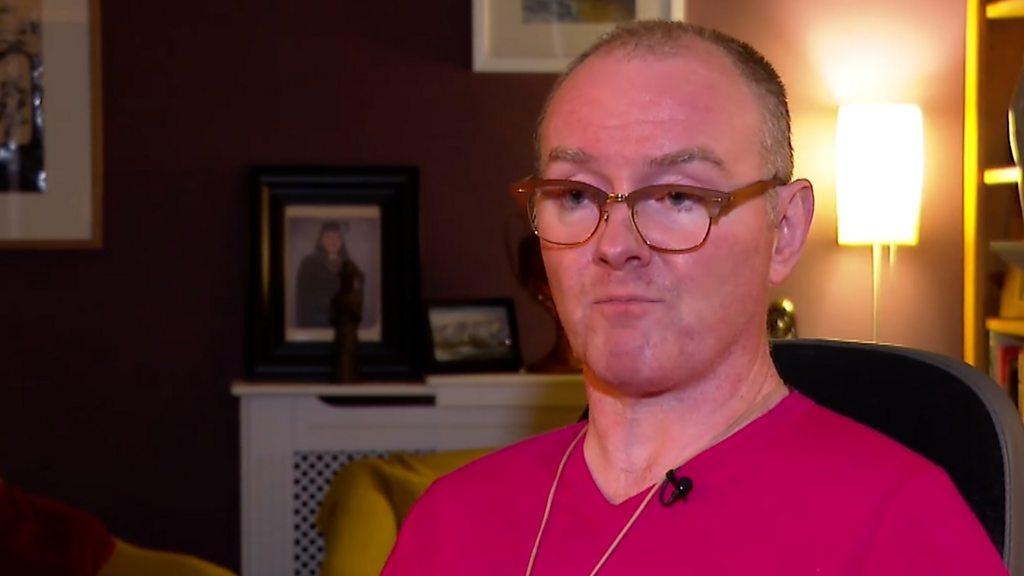
- Attribution
- Published2 October 2022
